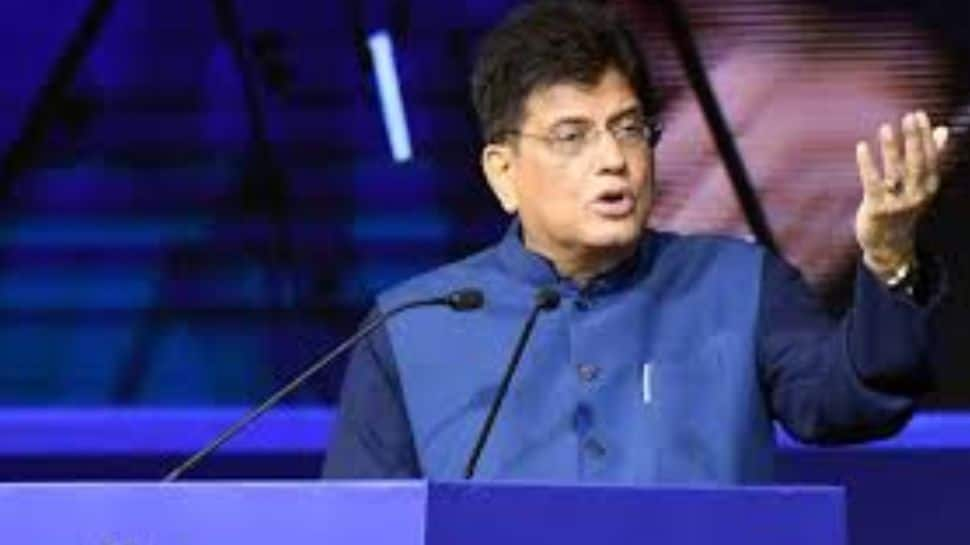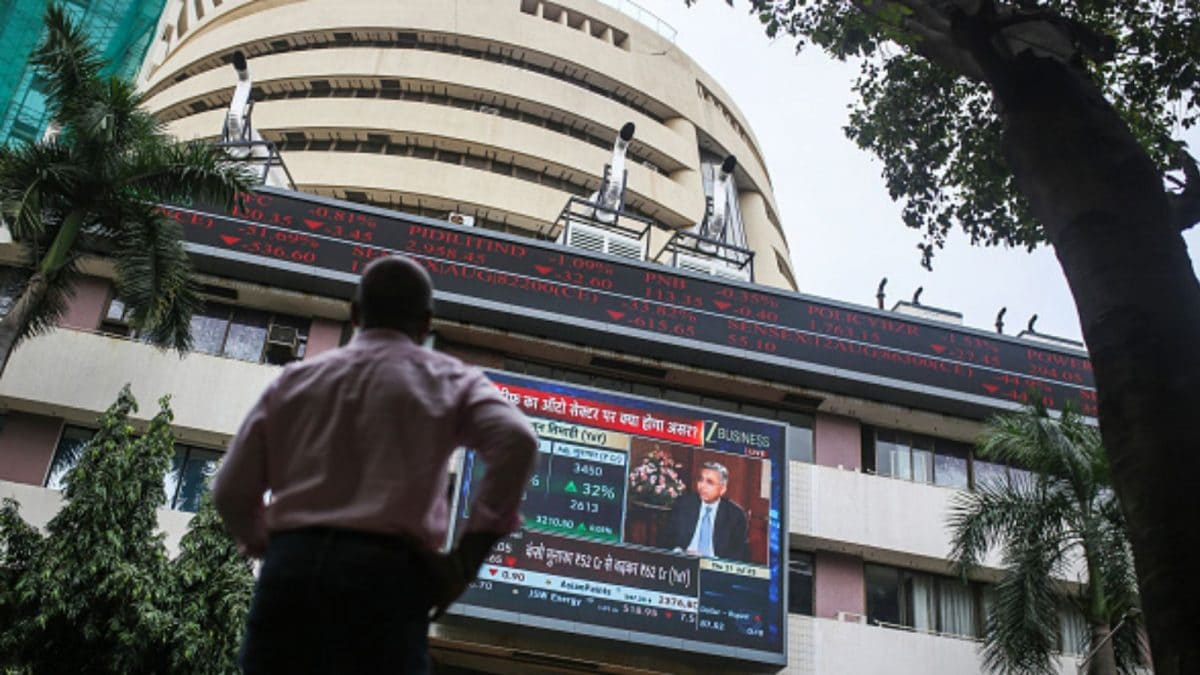Business
India, US Actively Working To Resolve Tariff Issues: Jaishankar
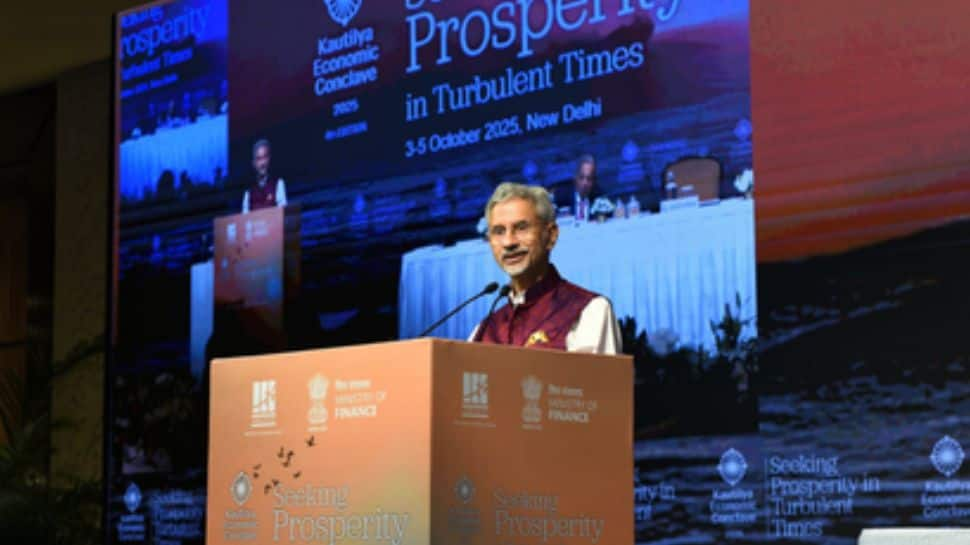
New Delhi: External Affairs Minister S. Jaishankar on Sunday said that India and the United States are actively working to resolve the ongoing tariff issues through dialogue, expressing confidence that these challenges will not affect the broader trade relationship between the two nations.
Speaking at the Kautilya Economic Conclave (KEC 2025), he said a large part of India’s trade with the US remains “business as usual” despite the current differences.
Jaishankar explained that the ongoing trade tensions largely stem from the inability of both sides to reach a common ground on several issues.
“We have issues with the US and a big part of it is because we have not arrived at a landing ground. The inability to reach there has led to tariffs being levied,” he said.
The minister revealed that negotiations are ongoing regarding the 50 per cent tariffs imposed on Indian exports.
He stressed that India’s “red lines have to be respected” while finding a solution. “There has to be an understanding with the US because it is the number one market and because a lot of the world has reached that understanding,” Jaishankar said.
Despite the tariffs, the minister underlined that trade between the two countries is largely continuing smoothly.
“I don’t think this will percolate to every dynamic of trade. Some issues will need to be negotiated, but I would hesitate to read very much more into it than the issues themselves,” he said.
Jaishankar also highlighted the challenges that tariffs pose for policymakers in today’s global trade environment.
“When you have a world where the central consideration of trade has become tariffs, please explain to me where comparative advantages and competitive advantages go,” he remarked.
He noted that additional tariffs have been imposed on India’s energy trade, but assured that both nations are engaged in active negotiations to resolve these matters.
The minister pointed out that India has successfully signed trade agreements with several Asian countries, though some of these economies are highly competitive.
“And in many cases, because of the supply chain nature, they have also provided a pathway for China. Our focus should be on FTAs with economies that are not competitive,” he said.
Business
India outlook: Reforms put wind in its sails amid global headwinds; PMO’s Shaktikanta Das maps the road ahead – The Times of India

India is at the cusp of a historic economic journey, with government policies and reforms giving the country “wind in its sails” even as global trade uncertainties intensify, Principal Secretary to the Prime Minister Shaktikanta Das said on Friday.Delivering the inaugural Bibek Debroy Memorial Lecture, Das said India has emerged stronger from successive global shocks and is now positioned to pursue sustained growth despite a fragmented global economic order, PTI reported.
Atmanirbharta as resilience, not isolation“At a time when the consensus that powered globalisation in past decades has frayed and multilateral cooperation has become harder to achieve, India has embraced Atmanirbharta as the overarching principle of our policies,” Das said.Clarifying the approach, he added: “Atmanirbharta is not being isolationist, but a strategy to build core competence and resilience. Economic Atmanirbharta means developing the capacity to produce critical goods and technologies at home and reducing over-reliance on foreign sources.”A self-reliant economy, backed by strong domestic capabilities and an autonomous foreign policy, provides India greater strength to sustain growth and navigate external challenges, he said. “Together, they ensure that India’s rise is resilient, sustainable and beneficial to us and to the world.”From global shocks to ‘wind in our sails’Das said India has successfully emerged from what appeared to be “perfect storms” triggered by multiple global shocks since the COVID-19 outbreak in 2020.“And now with the policies that the country has adopted, the wind is in our sails. We are indeed on our path to Viksit Bharat,” he said.India, he noted, stands at an inflection point where shifting geopolitical alignments and trade policies are reshaping the global economic landscape.“India stands today at the cusp of a historic journey — from being an incredible India to a credible India. There will be headwinds and challenges emanating from known and unknown sources,” Das said.Fragmenting world, India’s strategic responseDas flagged the strain on global institutions and multilateral frameworks, saying traditional multilateralism is increasingly being sidelined by geopolitical rivalries, protectionism and fragmentation.“Key international institutions are struggling to deliver on their mandates… Trade and supply chains, once seen as neutral conduits of globalisation, are increasingly being utilised as instrumentalities of disruption and dominance,” he said.Reshoring, friend-shoring and restricted technology flows are fragmenting global networks, reflecting broader geo-economic fragmentation, Das added.Against this backdrop, India’s approach is pragmatic. “India stands for a cooperative and rules-based global system; but at the same time, we are proactively forging partnerships and strategies to secure our national interest in a world where power is more diffused,” he said.“We, of course, acknowledge that the multilateral system must be revitalised, even as we adapt to new alignments,” Das added.
Business
Bessent says Argentina peso bet was ‘homerun deal’
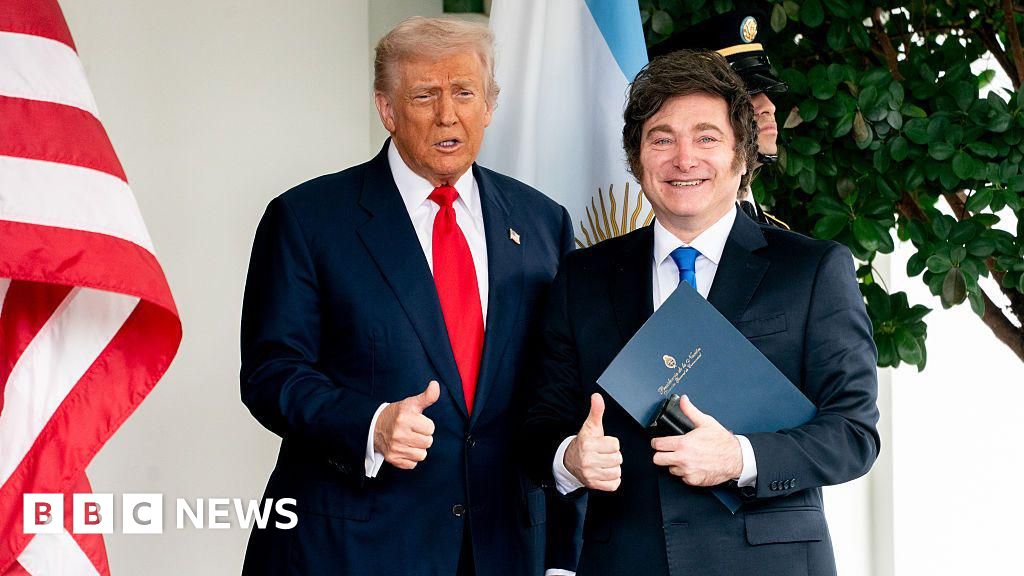
US Treasury Secretary Scott Bessent said his risky US gamble on Argentina’s currency has paid off.
Bessent said American financial support had been repaid and the US no longer held any Argentine pesos in its exchange stabilisation fund.
The US had purchased the then-plunging currency last year in an effort to stave off further turmoil and boost the party of President Javier Milei, a key ally of President Donald Trump, in the run-up to national midterm elections.
The move sparked criticism from Democrats, who accused Bessent of risking taxpayer money on a country with a long history of financial turmoil.
In the end, Bessent said the manoeuvre had been a success.
“Stabilising a strong American ally – and making tens of millions in profit for Americans – is an America First homerun deal,” he wrote in an announcement on social media.
When the US moved to intervene in September, people were dumping the peso, mindful of the shocks they had experienced after previous elections and rattled by signs that Milei’s party might experience an upset in the mid-terms.
Bessent promised to do “what was needed” to stave off further drops in September. He announced a month later that the US had purchased pesos and agreed to extend a swap line to Argentina, allowing the country to exchange pesos for dollars.
The move helped to halt the falls in the currency, which saw further gains after Milei’s party clinched a landslide victory in the mid-term elections, though it has drifted lower more recently.
Argentina’s central bank said it settled the swap line in December. It ultimately traded just $2.5bn in pesos for dollars of a possible $20bn, according to a government report on deal.
The report said the US had also separately provided $872m in support involving reserves held at the IMF.
The Treasury Department did not immediately respond to a request for comment on that transaction.
“Getting your money back is a straight forward definition of a success,” said Brad Setser, senior fellow at the Council on Foreign Relations, even if he said tens of millions in profit was “small change” given the sums involved.
But he said big challenges continue to face the Argentine economy, given how much it spent last year from its reserves to prop up the currency.
“It’s been a short term success – Bessent got his money back,” he said. “I do remain worried that the Argentines are relying too heavily on the expectation that Secretary Bessent will ride to the rescue … and therefore aren’t showing enough urgency in their plans to rebuild their own reserves.”
Business
Housebuilders in focus as firms set to reveal figures amid sluggish market

Housebuilding giants will be centre stage next week as Persimmon, Vistry and Taylor Wimpey publish trading updates that are expected to offer a fresh snapshot of the UK housing market.
The updates will be closely watched by Government ministers, who have pledged to accelerate housebuilding, and by investors looking for signs of recovery and the Budget’s impact on the housing market as the UK heads into 2026.
Persimmon is due to publish a full-year trading statement on Tuesday, while Vistry will announce its fourth quarter trading statement on Wednesday and Taylor Wimpey a trading statement on Thursday.
UK housebuilding activity has remained in its deepest slump since the start of the pandemic, while the wider construction sector has been in contraction for a year, according to the latest S&P Global UK construction purchasing managers’ index (PMI) published on Wednesday.
The index rose slightly to 40.1 in December from 39.4 in November, remaining well below the 50-point level that signals growth, marking the 12th consecutive month of declining activity.
Survey respondents cited fragile confidence, weak demand and clients delaying decisions ahead of the autumn budget.
Richard Hunter, head of markets at interactive investor, said Persimmon “has been hamstrung by the wider factors over which it has little influence, including but not limited to a faltering domestic economy”.
However, Aarin Chiekrie, an equity analyst at Hargreaves Lansdown, highlighted that Persimmon’s homes are typically valued around 15% below the new-build national average, which “offers some resilience to ride current market challenges” and should provide some relief on building cost pressures.
Meanwhile Vistry, formerly Bovis Homes, has benefited from supportive government policy towards affordable housing, with average weekly sales rates rising by 11% between July and early November compared to the previous year, according to Hargreaves Lansdown.
On Friday, figures release by HMRC revealed UK house sales were 8% higher in November than a year earlier, with around 100,350 homes changing hands, an indication of some optimism in the market.
Jason Tebb, president of OnTheMarket, said: “With the budget done and dusted, uncertainty at least has been removed and those who put their moves on pause are returning to the market, encouraged by lower mortgage rates from some of the big lenders, with others expected to follow.
“As January progresses, well-priced homes continue to attract interest.”
-

 Sports5 days ago
Sports5 days agoVAR review: Why was Wirtz onside in Premier League, offside in Europe?
-

 Politics5 days ago
Politics5 days agoChina’s birth-rate push sputters as couples stay child-free
-

 Entertainment2 days ago
Entertainment2 days agoDoes new US food pyramid put too much steak on your plate?
-
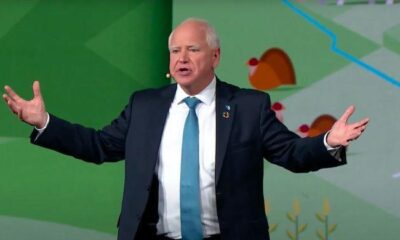
 Entertainment5 days ago
Entertainment5 days agoMinnesota Governor Tim Walz to drop out of 2026 race, official confirmation expected soon
-

 Sports5 days ago
Sports5 days agoSteelers escape Ravens’ late push, win AFC North title
-

 Business5 days ago
Business5 days agoAldi’s Christmas sales rise to £1.65bn
-

 Sports5 days ago
Sports5 days agoFACI invites applications for 2026 chess development project | The Express Tribune
-

 Politics2 days ago
Politics2 days agoUK says provided assistance in US-led tanker seizure



